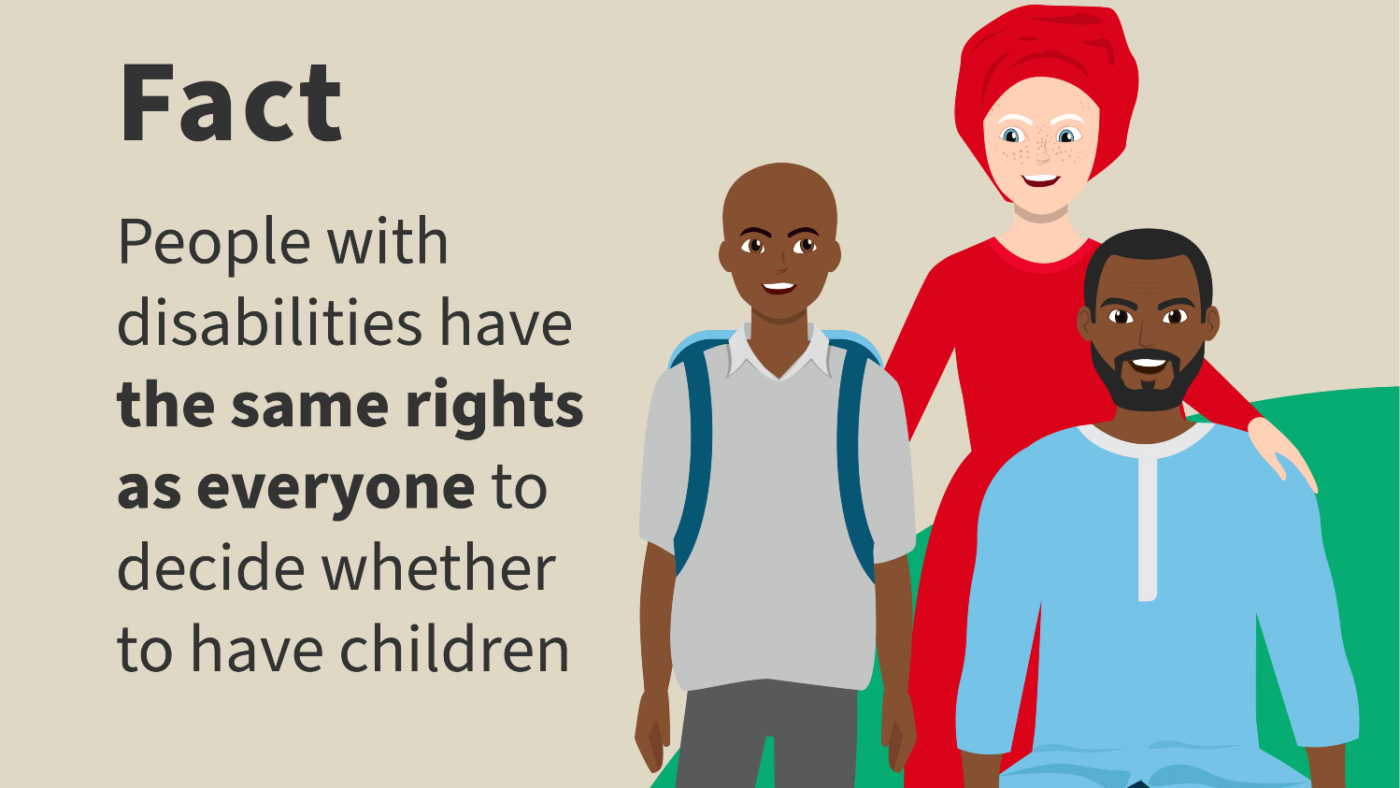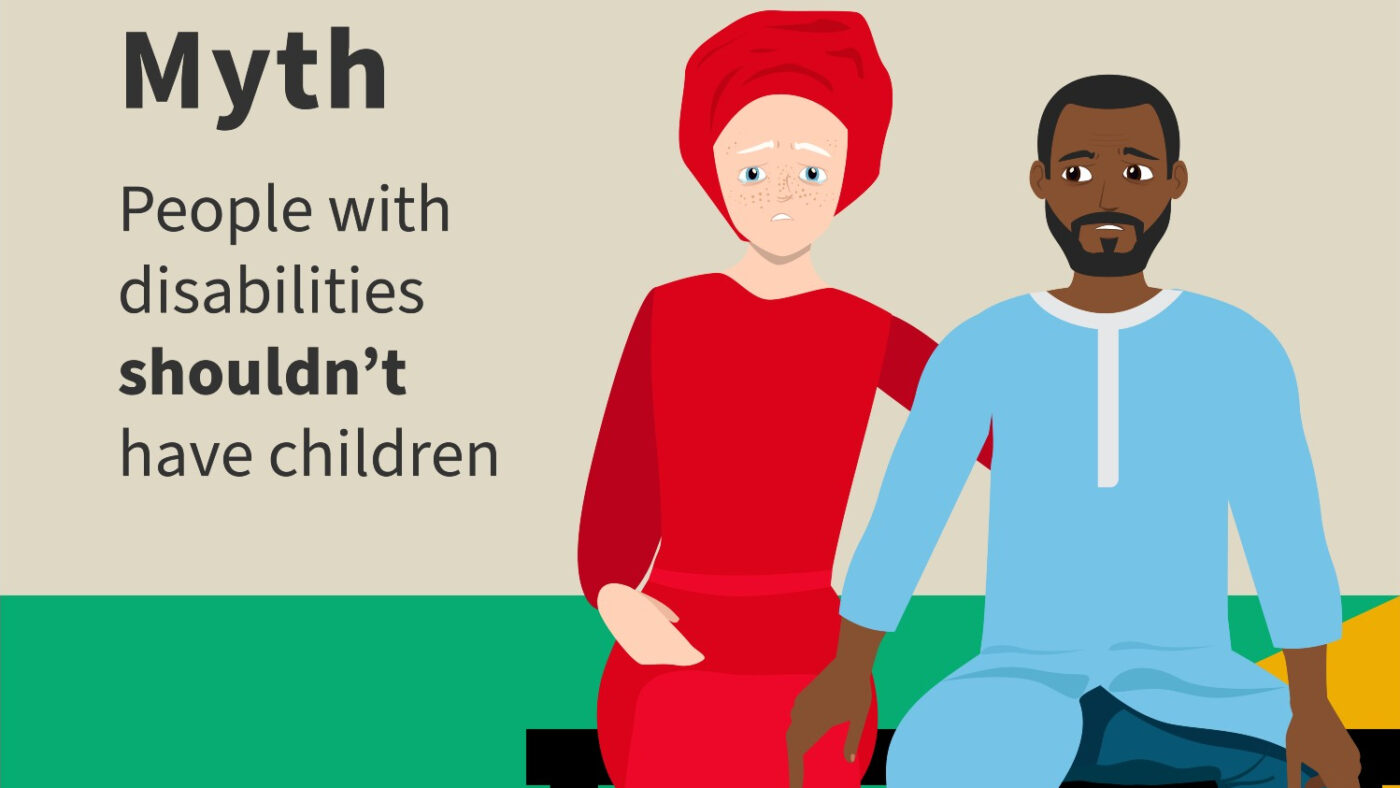Tackling discrimination through design: lessons from an innovative workshop
When it comes to family planning and sexual health, people with disabilities are often left out of the conversation.
There’s an assumption that it’s not an area of concern or importance for them. For women and girls with disabilities, this discrimination can come with an added layer of judgement from a society that gives them the message that ‘family planning is not for you’.
In Nigeria, the Inclusive Family Planning (IFPLAN) project was set up to tackle this injustice. One of the project’s aims was for women and girls with disabilities to be part of the design and cocreation process of the project activities and communication materials. Led by Sightsavers and BBC Media Action with funding from UK Aid, the project was a unique learning experience for us, as it incorporated accessible and inclusive social behaviour change principles from the very beginning.
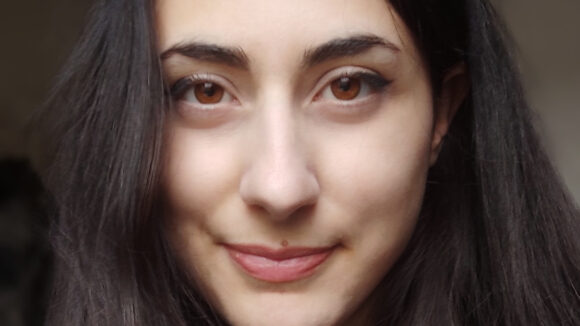
Author
Isabella Giorgio is a web, design, and branding project manager at Sightsavers.
About SightsaversEnsuring people with disabilities are included
As part of this approach, we brought together disability organisation members, government representatives and consortium partners for a series of workshops. The initial three-day workshop had more than 50 participants joining both remotely and in person in Abuja.
After many reviews and consultations, we drafted an intervention plan. Two co-creation groups were created, one focusing on media intervention and the other one on community activities. We held two further five-day workshops in Abuja to develop a social behaviour change approach and a wide range of communication activities, including a radio drama.
My role, as a member of Sightsavers’ web, design and brand team, was to participate in discussions to make sure we could co-create project communication materials in a way that adequately reflected the experiences and concerns of people with disabilities.
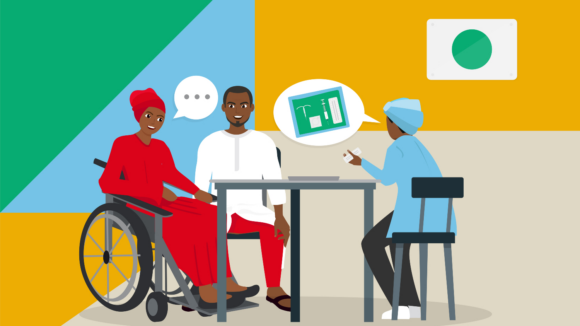
Further reading
To learn more about our social behaviour change approach taken in this inclusive family planning project in Nigeria, download the summary.
Download the summary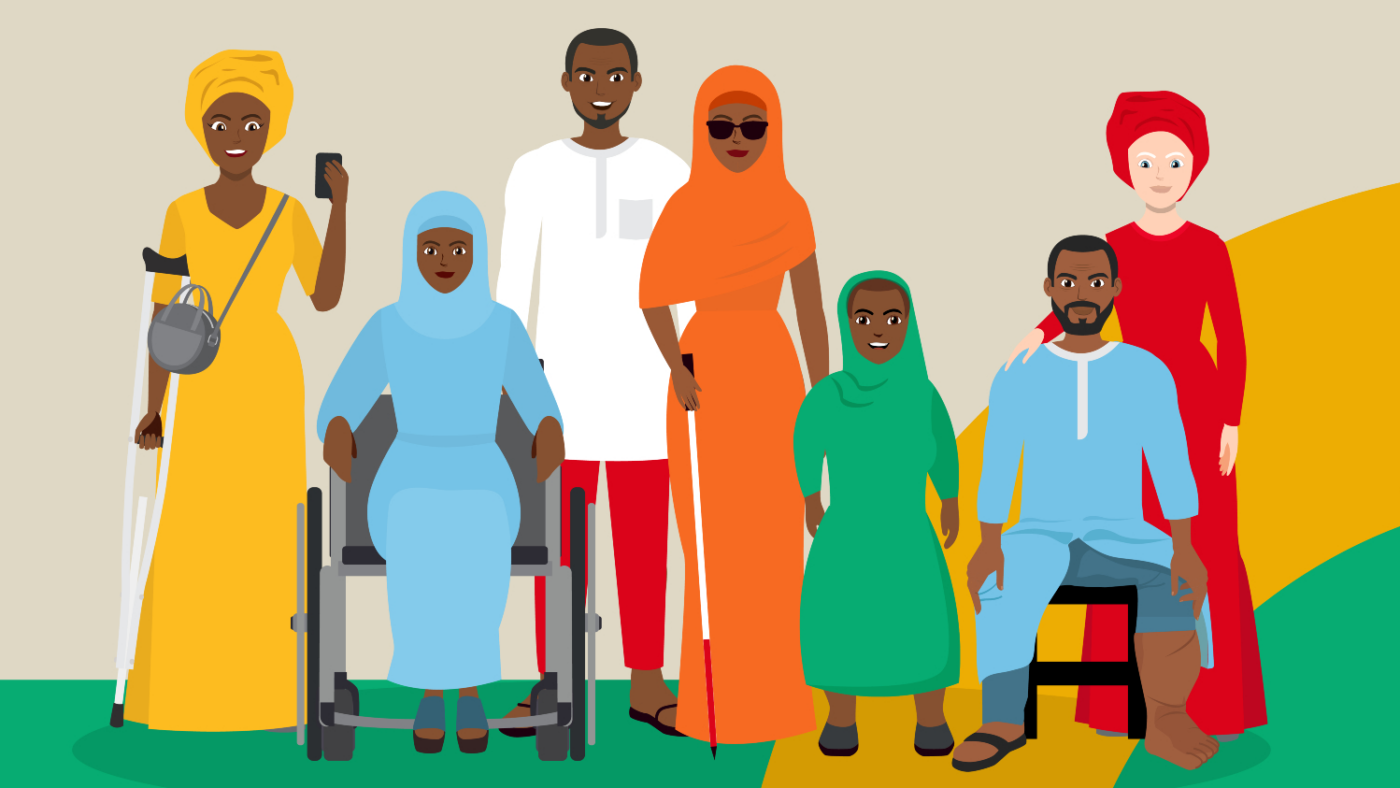
Creating characters that acknowledge people’s lives
Communication materials relating to sexual and reproductive health don’t usually acknowledge the lives of people with disabilities or answer questions they might have.
This can leave people feeling they don’t have the power to make informed choices. During the workshop, we discussed how to make sure information would be relevant and easy to digest. The characters from the radio drama include strong women with disabilities of different ages and circumstances. These women served as a foundation for the creation of social media posts, animations, informational leaflets, and other content.
For example, we were inspired by a character from radio drama called Lucy, a visually impaired woman who faces opposition from her mother-in-law when she and her husband want to access family planning services. We also included Zinaru, a disabled woman who leads a local organisation for people with disabilities, navigating the challenges of balancing her career and personal life.
Another character is Asabe, a young social media influencer with a physical disability, who is determined to raise awareness among individuals with disabilities regarding their sexual and reproductive health rights. Asabe encounters opposition from her father and discrimination in the workplace. She struggles to make her mother understand her desire to pursue further education before getting married.
We drew inspiration from the radio drama ‘Madubi’, developed as part of our social behaviour change approach.
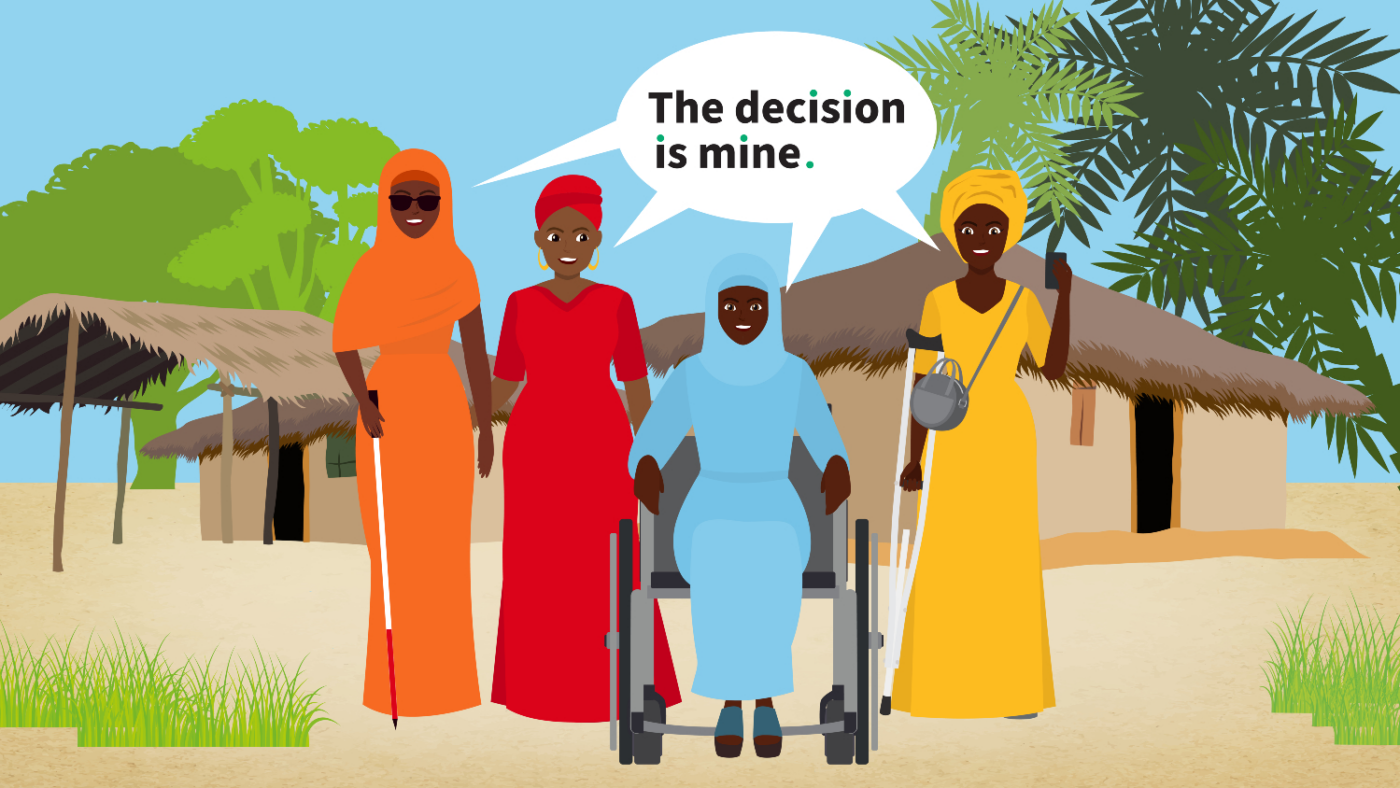
A diverse range of conditions
Apart from featuring relatable characters, we made sure the content portrayed a diverse range of impairments and conditions. This included visual and hearing impairment to albinism, vitiligo, restricted growth and other physical, intellectual, mental and psychosocial disabilities.
We also made sure that family and community members were included in the materials – from husbands and peers to religious leaders and health service providers – to emphasise the need for a shift in how society views and supports women with disabilities and their sexual health. We wanted to communicate that all these groups need to accept that people with disabilities, particularly women, have the right to make decisions about their own bodies and sexual lives.
Ensuring women’s voices are heard
Women with disabilities participated with passion and confidence and shared their opinions during the group discussion. Their presence in the room was important enough in itself, but they also ended up being some of the most powerful driving forces of the conversation. I’m convinced the change we are seeking to create is already underway, through these women leading by example in those rooms in Abuja and Kaduna.
I’m grateful to have had the opportunity to discuss, learn and co-create with all the participants, and this project will inform our evolving approach to inclusive design at Sightsavers, as well as having contributed to strengthening the project’s communication materials and helping to better reach the people it exists to support.
The most profound objective of this project is to provide support for women and girls with disabilities to access family planning services based on informed choices, respecting their bodily autonomy. So the final task of the workshop was for us to collaborate on a slogan to sum it up. Over the course of our discussions, a compelling idea emerged and we chose ‘Shawara ta zabi na’ – a Hausa phrase that translates as: ‘The decision is mine.’
The workshops were a great success and a brilliant learning opportunity for everyone who took part.
More news and opinions
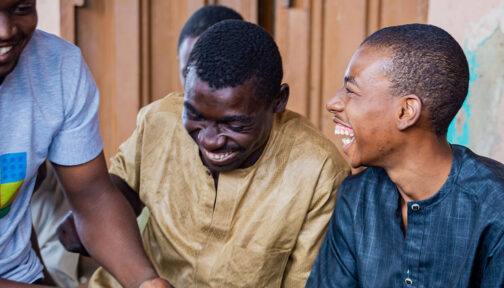
Global Disability Summit 2025: Closing the gap between disability inclusion and development
Inclusive Futures is attending the summit in Berlin on 2-3 April. Visit our booth or attend our panel event to connect with us and learn more about our programme insights.
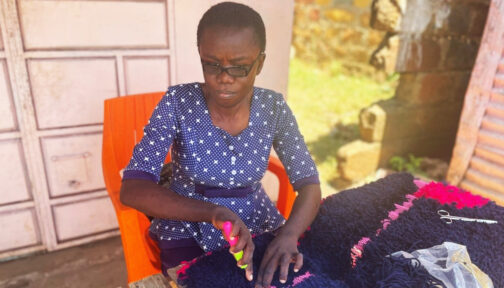
Sense International wins prestigious Zero Project award for its work with entrepreneurs with disabilities
Sense International has won a 2025 Zero Project Award for empowering individuals with deafblindness and complex disabilities in Kenya to build successful businesses and achieve financial independence.
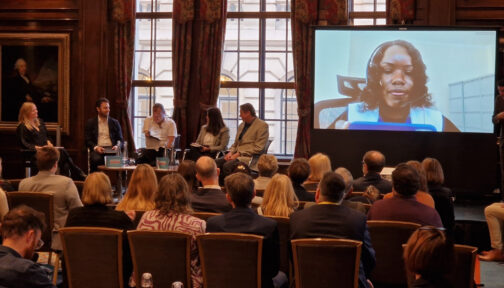
Driving change: launching the six principles for inclusive development
Inclusive Futures and the UK Foreign, Commonwealth & Development Office marked International Day of People with Disabilities by jointly hosting an event to launch the six principles for inclusive development.
Sign up to Inclusive Futures emails today
Sign up to Inclusive Futures emails today
Want to hear more from Inclusive Futures? Sign up to receive the latest research from our programmes and resources to help make your work inclusive of people with disabilities.
For more information see our privacy policy
